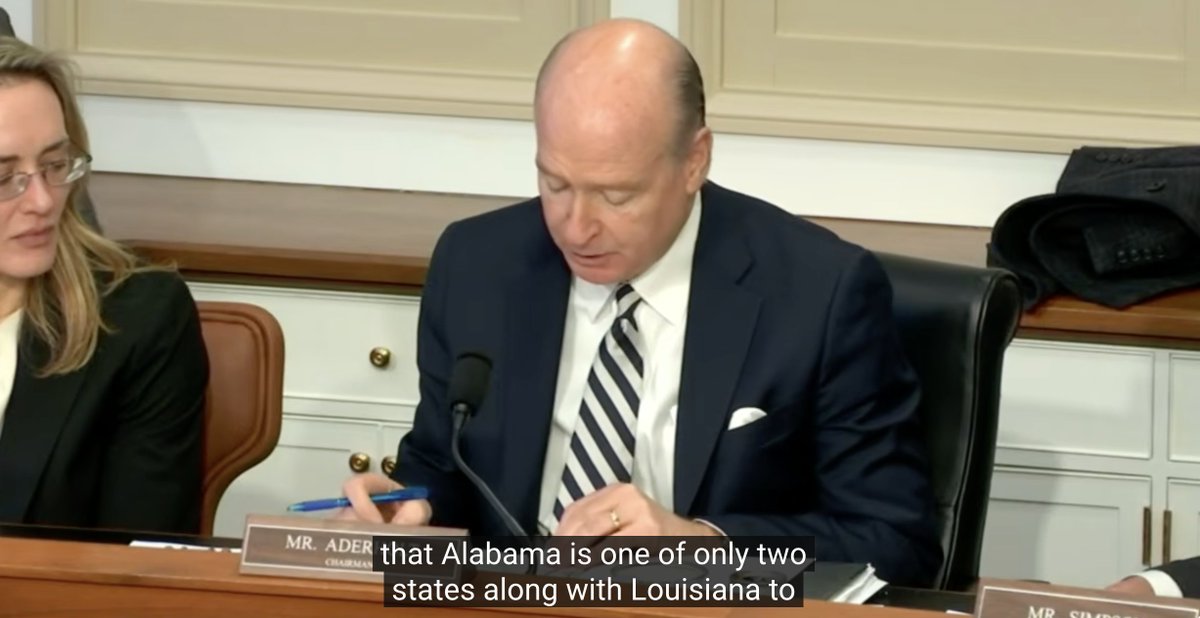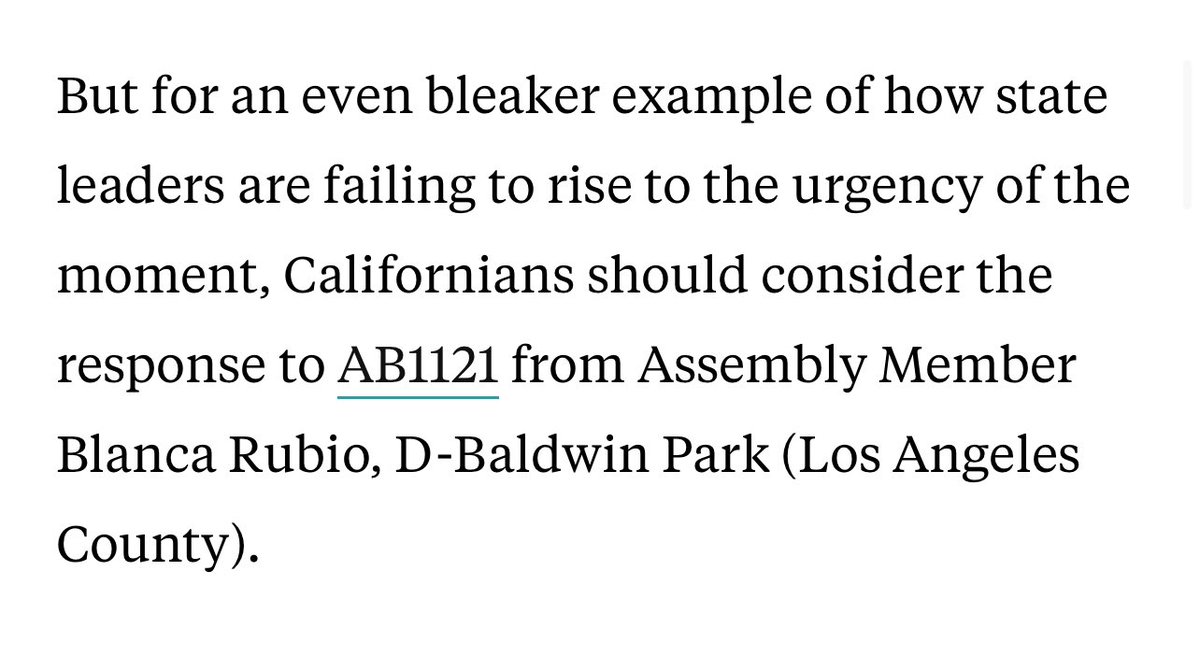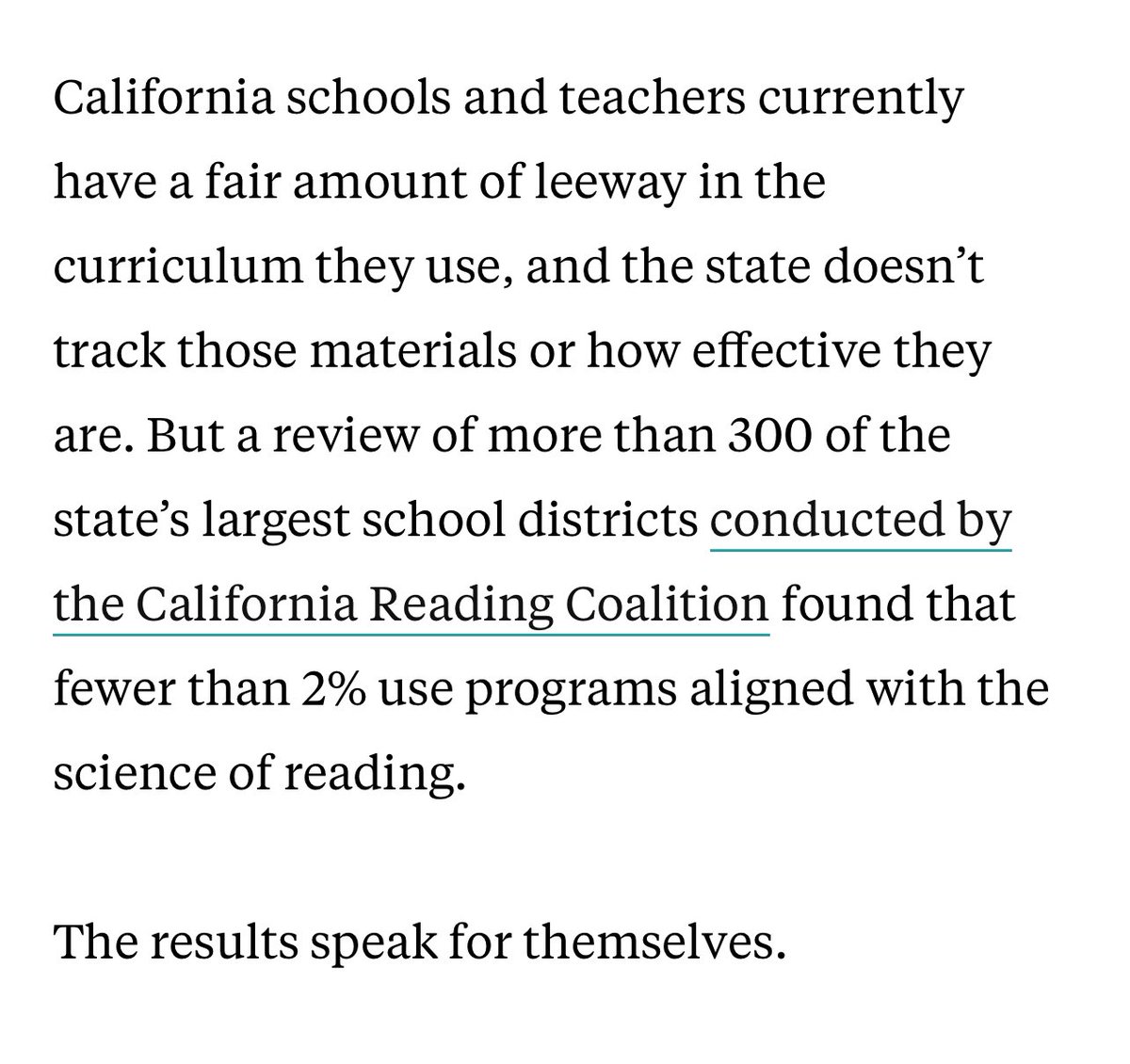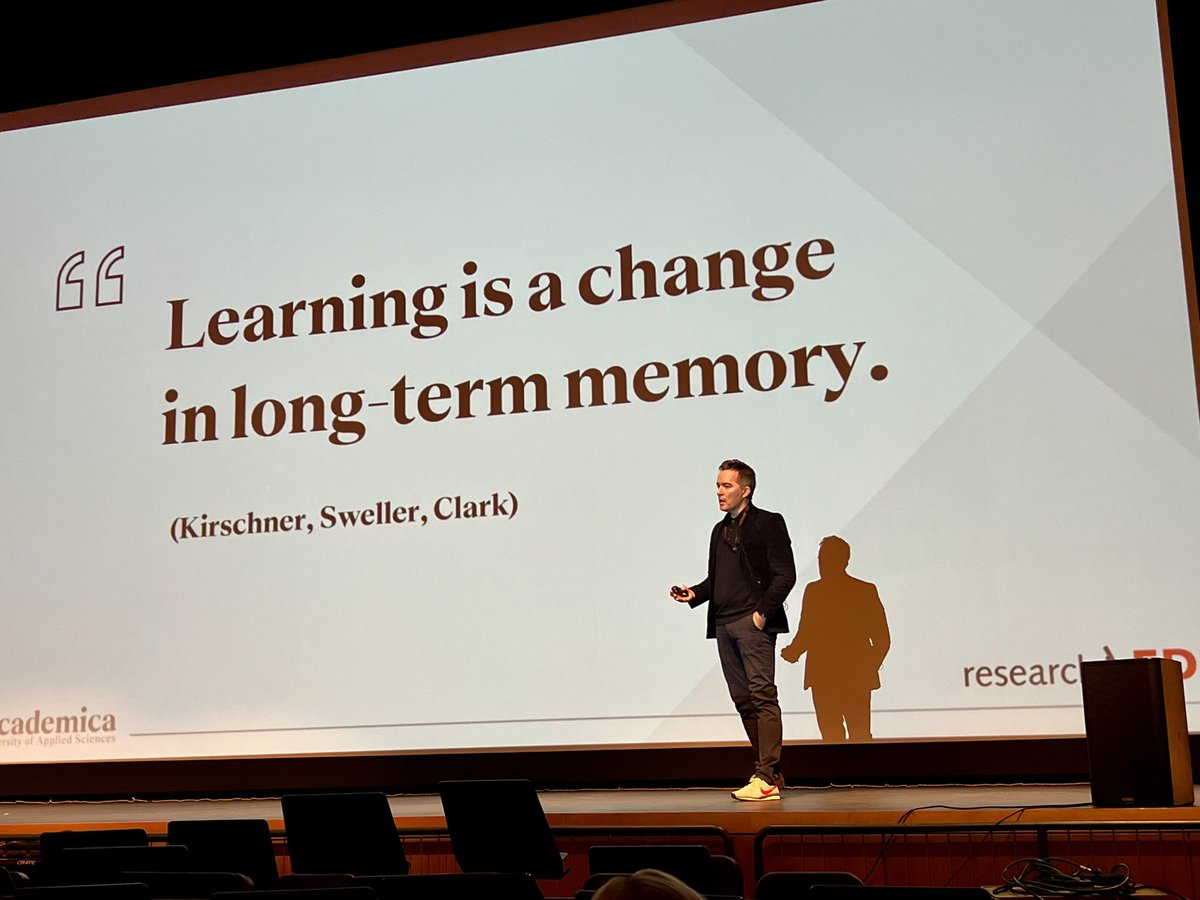Now It Can Be Said, @EdWriters Edition:
@matt_barnum of @Chalkbeat, the most well-staffed publication in K–12 Ed, finally… finally… notes that there is weak evidence for masking in schools.
After virtually every US school has gone mask-optional.
chalkbeat.org/2022/4/18/2302…
@matt_barnum of @Chalkbeat, the most well-staffed publication in K–12 Ed, finally… finally… notes that there is weak evidence for masking in schools.
After virtually every US school has gone mask-optional.
chalkbeat.org/2022/4/18/2302…
My favorite part is where he notes that the CDC guidance was unclear back when it was most needed to get schools reopened.
👉 What do you call journalism about a topic that comes out ~15 months after it could have been written but wasn’t?
👉 What do you call journalism about a topic that comes out ~15 months after it could have been written but wasn’t?

What’s it mean if an Ed policy reporter who calls himself a “fake stats vigilante” won’t talk about the poor evidence base for an education policy until the policy has more or less faded away?
BC Matt is very smart. You can’t tell me he just spotted these glaring issues.
BC Matt is very smart. You can’t tell me he just spotted these glaring issues.

To his credit, he is refreshingly direct about it.
“Remarkably, two years into the pandemic, there is little definitive research on either the benefits or the downsides of requiring masks in American schools, even though the CDC has released a number of studies.”
#satchat


“Remarkably, two years into the pandemic, there is little definitive research on either the benefits or the downsides of requiring masks in American schools, even though the CDC has released a number of studies.”
#satchat



This represents a pretty noteworthy pivot from how @matt_barnum has used his voice until now.
He has been a rather ardent defender of masks in schools… even calling out @DLeonhardt for how he talked about the weak mask efficacy data.



He has been a rather ardent defender of masks in schools… even calling out @DLeonhardt for how he talked about the weak mask efficacy data.
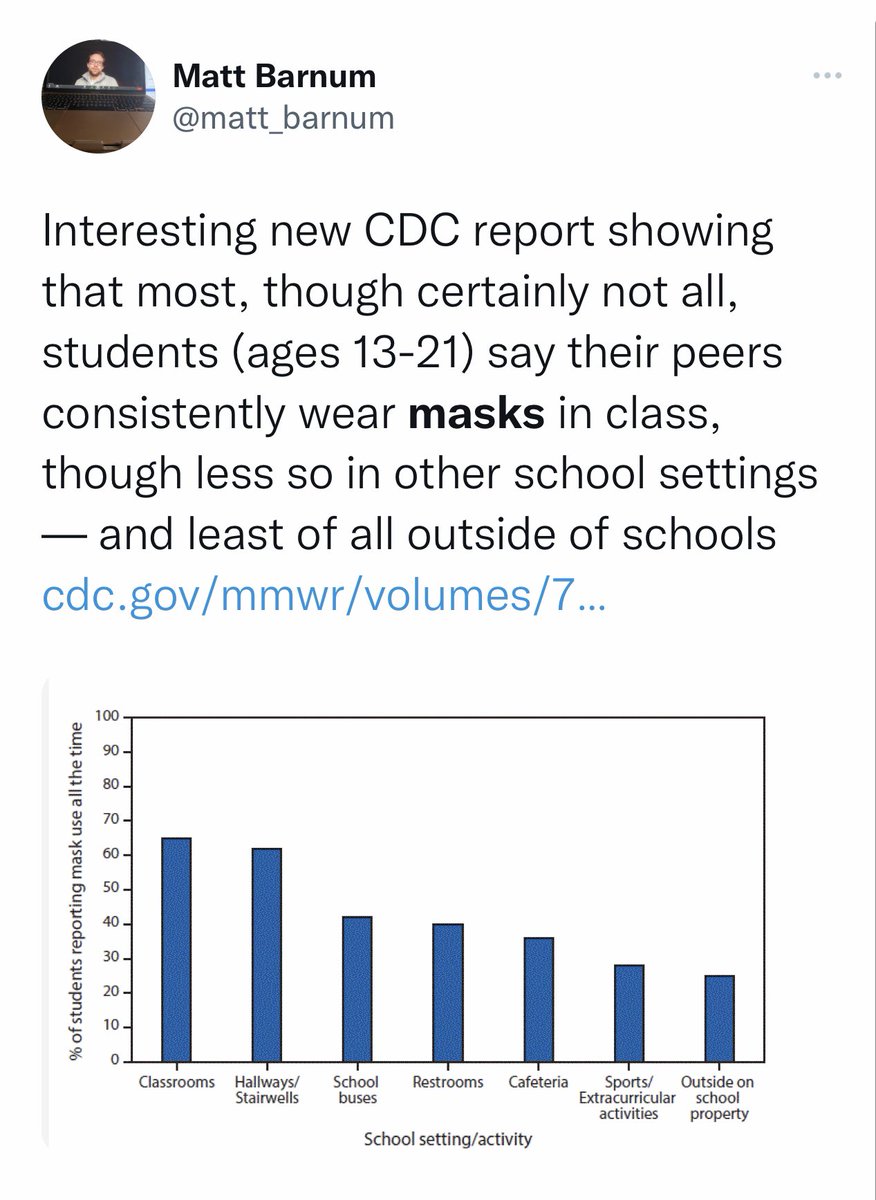



Most often, @matt_barnum points to the popularity of mask policies.
This has been a constant refrain.



This has been a constant refrain.

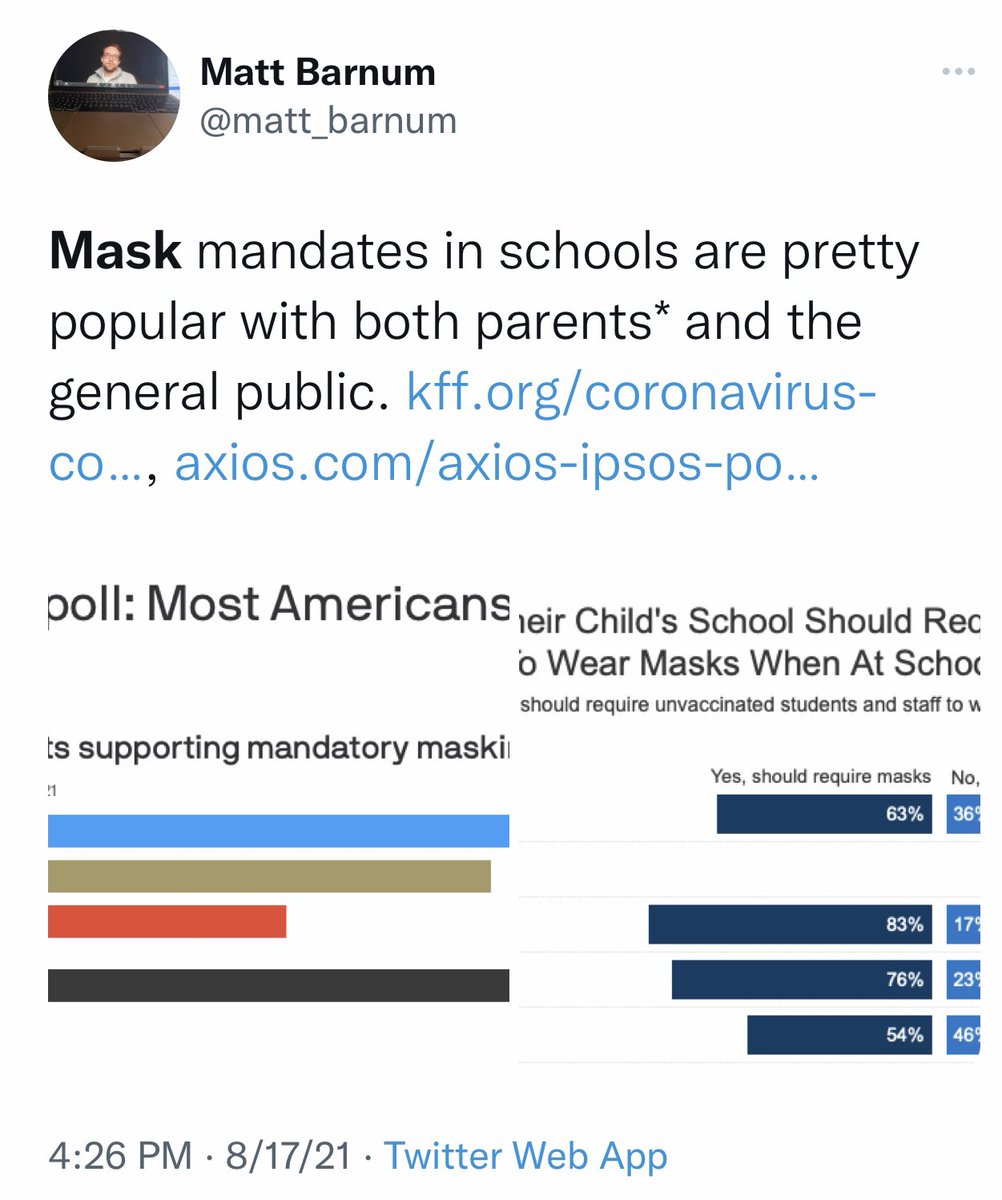


But here’s the thing:
Any smart Ed reporter knows schools generally enjoy high trust from parents, & school policies tend to shape parent opinion.
I’m sure @matt_barnum read @vkoganpolisci’s research on ways school closures influenced parent opinion on the safety of reopening:
Any smart Ed reporter knows schools generally enjoy high trust from parents, & school policies tend to shape parent opinion.
I’m sure @matt_barnum read @vkoganpolisci’s research on ways school closures influenced parent opinion on the safety of reopening:
https://twitter.com/karenvaites/status/1484569406889988096
I’d bet a million dollars that surveys of parents show they approve of their school’s reading curriculum, too.
AND YET most of them should not: edweek.org/teaching-learn…
👉 The reason we have journalism is to keep schools accountable for the soundness of their policies.
AND YET most of them should not: edweek.org/teaching-learn…
👉 The reason we have journalism is to keep schools accountable for the soundness of their policies.

One more bit of gratitude to @davidzweig, who understood the assignment and wrote this in August, 2021: nymag.com/intelligencer/…
With a follow up piece on crummy CDC studies in December: theatlantic.com/science/archiv…
They remind us what was possible in mainstream media.
With a follow up piece on crummy CDC studies in December: theatlantic.com/science/archiv…
They remind us what was possible in mainstream media.
So, allow me to remind @matt_barnum that the biggest enabling condition of the crummy @CDCgov pandemic performance was his choice, and his @edwriters colleagues’ choices, to stay silent about, and even promote, the blatant crap out of the CDC for the last 2 years.
@elizwgreen
@elizwgreen

And I look forward to @matt_barnum’s coverage of children’s speech delays in 2023.
https://twitter.com/karenvaites/status/1508156665387958281
At least I can commiserate with the other parents who tweeted the heck out of the critiques of 6-foot distancing, based on issues that Barnum names a year-plus later.
https://twitter.com/ArlParentsforEd/status/1517870386167308289
• • •
Missing some Tweet in this thread? You can try to
force a refresh


